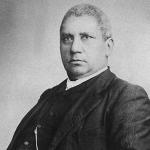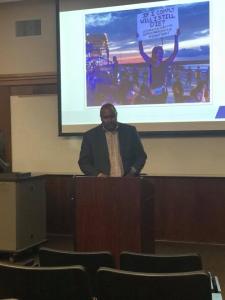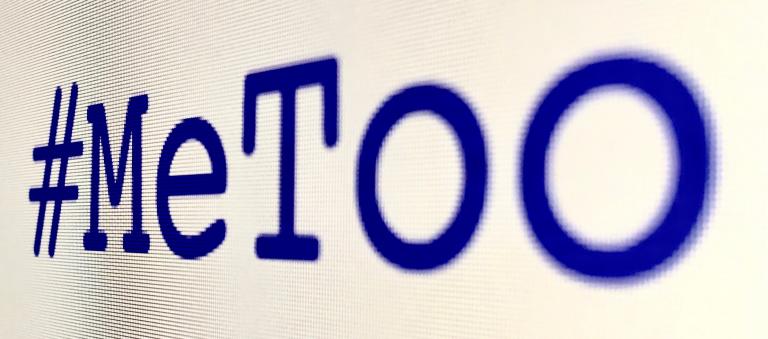As America trods the path towards another showdown in the saga for racial justice, communities of faith must be prepared to provide spiritual and pragmatic resources for sustained resistance. Renowned scholar and theologian Josiah Young explains black spirituality is an antidote to anti-black racism and its aesthetics forms can be detected in the acts and perspectives that counter methods and systems of racial injustice. The internal fortitude produced by this artistic tradition is a testament to a rich spiritual legacy and is found in the literature, music, and dance of black folks. Hip-hop artists like the Atlanta-based rap group, Goodie Mob, provide invaluable resources towards this end.
Goodie Mob’s sophomore album, Still Standing (1998), features a skit in which an unnamed king demands his servant fetch the Royal Fool to dance to appease the king’s boredom. When the servant returns, he delivers a message from the Royal Fool. “You f*cking fool!” he reads. “N*ggas don’t dance. All they do is this!” The king is furious. “All they do is this?” he asks in anger and amazement. “Off with his head!” exclaims the king.
Goodie Mob’s parable explains that when the people hired (or forced) to entertain and work society’s elites attempt to determine the circumstances and conditions under which they perform, they are routinely threatened with violence in return. In Biblical parables, kings rewarded laborers who bucked against the system with violent punishment and forced solitude. In the parable of the talents, the laborer who refused to work for the profit of the king was cast into outer darkness after he told the king that he was an unjust man who reaped where he had not sown. Similarly, Daniel and the 3 Hebrew boys–Shadrach, Meshach, and Abednego–were jailed and sentenced to death when they would not assume bodily postures that expressed allegiance to Nebuchadnezzar and the Babylonian empire.
As these stories depict, threats, loss of wages, and state-sanctioned violence were common responses to those who acted in defiance to government empires. Repeatedly, kings and empirical governments lashed out with violent force to assert their physical dominance over their subjects. Violence was accompanied by loss of jobs and wages–blatant attempts to cut off access to resources needed for bodily health. In the stories of conflict between laborers and elites, phrases like “You’re fired!” and “Off with his head” signal to demonstrators that they are not permitted to control the postures and parameters of their public performance.
Jesus admonished his followers not to fear those whose only power was to control or kill the body. He wanted them to be clear about the cost of discipleship–it might cost your very lives. Consequently, they needed to develop inner-fortitude impenetrable to the physical tools of the enemy.
The same idea might be applied to a community of people engaged in active resistance to enemy forces. The internal communal dynamics needed to sustain collective resistance must be developed if movements for justice are to have a lasting effect. The historical record of African American freedom movements demonstrates this necessity. The Montgomery Bus Boycott achieved lasting success only because community members rallied to supply resources needed to supplement forfeited modes of public transportation. Such organization required sacrifices from both individuals and communities, and these sacrifices were often made despite attempts by law enforcement and private citizens alike to intimidate boycotters with threats of violence. Perhaps the storytelling genius of Goodie Mob and other hip-hop artists can provide the sustenance we need as we refuse to dance before the king.
Alphonso F. Saville, IV is a scholar, educator, and artist. His research explores American religious history, African American religious literature, and religious freedom in contemporary American society. His poetic works are showcased via Twitter and Instagram. You can follow Dr. Saville @drphonsarelli.
Donate to the Work of R3
Like the work, we do at Rhetoric Race and Religion? Please consider helping us continue to do this work. All donations are tax-deductible through Gifts of Life Ministries/G’Life Outreach, a 501(c)(3) tax-exempt organization, and our fiscal sponsor. Any donation helps. Just click here to support our work.













